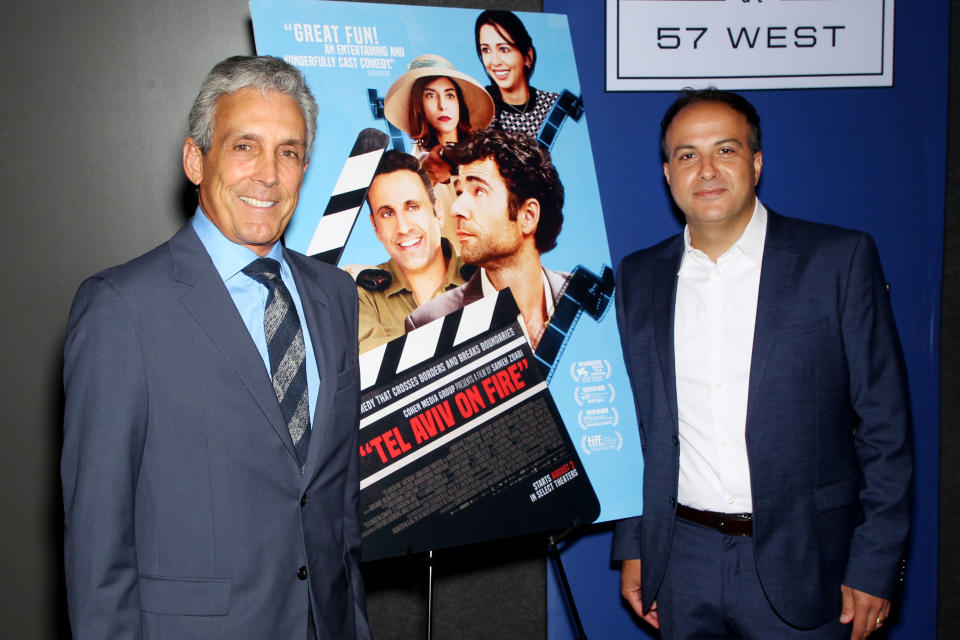Landmark Theatres Hit with $48 Million Lawsuit Over Departure from NYC’s 57 West

New York real estate developer the Durst Organization wants $48 million in unpaid rent and damages from Landmark Theatres’ now-closed Upper West Side Manhattan 57 West Theater. The company also claims that, since announcing its permanent closure last August, Landmark removed 700 seats along with light fixtures and ticket kiosks.
Durst continues to show the space to prospective tenants. Said spokesman Jordan Barowitz, “We are still showing the space — minus the stuff they stole.”
More from IndieWire
'F9' Tops All VOD Charts While Paramount Slashes 'A Quiet Place Part II' Price to $4.99
'Jungle Cruise' Beats Box-Office Expectations as 'Old' Plummets. How Is This PVOD's Fault?
On July 7, Durst entered a request for summary judgment in its suit against Landmark holding company Silver Cinemas Acquisition. Summary judgment means a party to the case asks that the facts they claim be adjudicated without a trial.
Landmark announced it would permanently close the three-year-old theater after it couldn’t come to terms with Durst on renegotiating their 30-year lease. Landmark showed steady improvement in grosses after its 2017 opening, particularly after the prime Lincoln Plaza Theater closed late that year. It also became popular as a site for screenings and special events.
Durst made the deal when Mark Cuban owned Landmark. Current owner Charles Cohen inherited the lease when he acquired the circuit in December 2018. It temporarily closed in March 2020 due to Covid, and had not yet reopened when the company announced in August that they were vacating the premises.
This isn’t a David vs. Goliath battle. All parties past and present are billionaires: both the Cohens and the Durst Organization are titans in New York real estate. (For non-New Yorkers, Robert Durst, on trial for murder in California, the subject of HBO documentary series “The Jinx,” is the older brother of CEO Douglas Durst. The latter recently testified under subpoena as a prosecution witness.)

Marion Curtis/StarPix for Cohen Media Group/Shutterstock
In its initial filing, Durst sought damages of around $48 million, primarily from anticipated rent over the term of the lease. More specifically, they seek $1,082,317 in unpaid rent from January 2020 until the termination of the lease by Durst last September. They also ask for a judgment that an additional letter of credit of $1,330,000 they hold as part of the original agreement be transferred to them.
Included in the filing is that Cohen withheld rent for the three months prior to the theater’s Covid-related closing in March 2020. Per September 2020 reports, Landmark had been trying renegotiate its lease as early as 2019, right after Cohen took over. Landmark did not respond to repeated requests for comment.
Durst also cited lease provisions that disallow claims of force majeure, i.e. “acts of God” or mitigating outside factors that preclude a business operating as a reason to vacate rent.
Durst alleges that concurrent to Landmark’s decision to vacate, they removed the seats and other items that were not theirs to remove, based on the definition of “moveable objects.” Durst claims that bolting, hardwiring, and other installation issues made them permanent features, and that removal also caused damage to the premises. They also charge this was done “under the cover of darkness in the middle of the night.”
Manhattan theaters are now operating. If the 57 West location does not return as a theater — which is certainly possible given its location in a prominent commercial/residential building — it will reduce the options and seating for top specialized films. It also reflects challenges Landmark faces in other markets, including some that ceased operations under similar rent payment issues.
Landmark was evicted from its long-time tenancy at the Uptown Theater in Minneapolis for non-payment of rent. The landlord of the River Oaks in Houston, the dominant platform location in that city, refused to renew Landmark’s lease in March 2021, citing non-payment of past owed rent even after six months of renewed operation.
Landmark remains the most important dedicated specialized exhibitor, with locations throughout the country that are particularly hard to replicate in many major cities outside of New York and Los Angeles. Cohen also owns Cohen Releasing, a niche distributor that handled largely foreign-language releases as well as repertory catalogues for home and theatrical release. It acquired the leading U.K. specialized circuit Curzon Cinemas and distributor Artificial Eye. At Cannes, Cohen acquired U.S./U.K. rights for Francois Ozon’s in-competition French film “Everything Went Fine.”
Best of IndieWire
New Movies: Release Calendar for July 30, Plus Where to Watch the Latest Films
Cannes 2021 Deals: The Complete List of Festival Acquisitions
Sign up for Indiewire's Newsletter. For the latest news, follow us on Facebook, Twitter, and Instagram.

